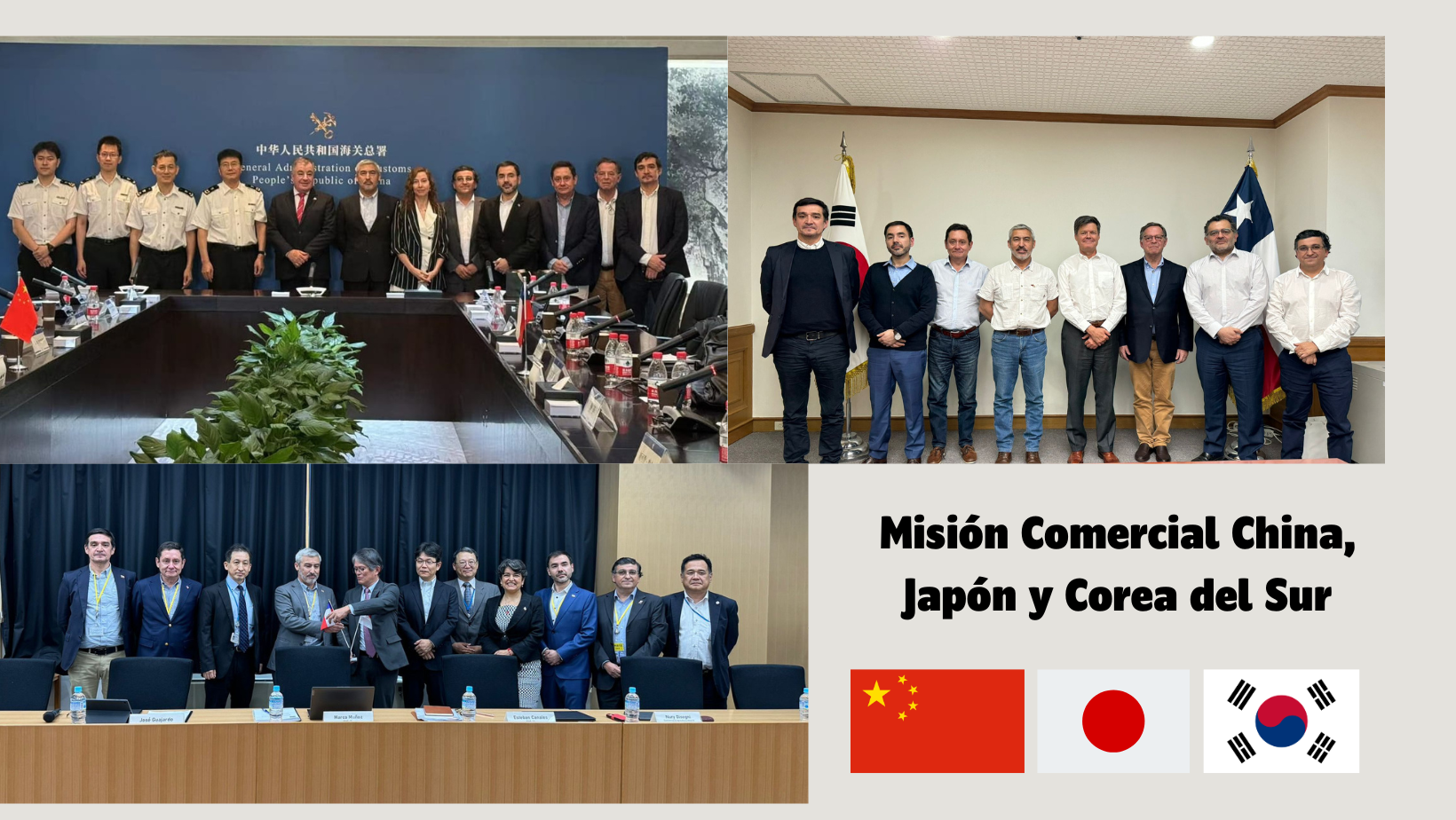
China, Japan, and South Korea: critical markets for Chilean pork and poultry
Pork exports to Japan, South Korea, and China represent 73% of Chile’s total pork exports in value. That is why ChileCarne’s Business Manager joined a delegation headed by the Director of SAG to advance zoning protocols negotiations for ASF and resume poultry exports to China. Chile has established itself as a global pork exporter, according […]

Pork exports to Japan, South Korea, and China represent 73% of Chile’s total pork exports in value. That is why ChileCarne’s Business Manager joined a delegation headed by the Director of SAG to advance zoning protocols negotiations for ASF and resume poultry exports to China.
Chile has established itself as a global pork exporter, according to the ranking of the United States Department of Agriculture (USDA). Chile is fifth among pork exporting countries, and in 2023, 73% of the country’s total pork exports were destined for Asia. In this context, the visit to these markets was strategic for the Chilean pork and poultry industry.
Japan is the second largest destination for Chilean pork, with 40,000 tons exported in 2023, accounting for 14% of the total volume exported and $157 million USD, 21% of the total value of exports. Chile is Japan’s sixth largest pork supplier.
In 2023, pork consumption in Japan was around 20 kilos per capita, representing 37% of the country’s total meat consumption. Japan is the world’s second largest pork importer, following China, importing 1.21 million tons in 2023.
On May 28, the Chilean delegation met with Norio Kumagai, Japan’s Deputy Director General of the Department of Food Safety and Consumer Affairs to discuss the terms of a new framework agreement for pork exports to Japan and review the technical issues needed to advance a zoning agreement for highly pathogenic avian influenza (HPAI).
South Korea has become the third largest destination for Chilean pork, with 35,000 tons exported to that market in 2023, accounting for 12% of the total volume of Chilean exports and $163 million USD, 22% of the total value. Chile is responsible for 4% of pork imports to South Korea, ranking fifth among its main suppliers.
Pork consumption in South Korea is 38.5 kilos per capita each year, one of the highest in the world. The recovery of the foodservice sector (hotels, restaurants, and cafes) after the pandemic has boosted consumption, highlighting the role of pork in the South Korean diet.
Hence, on May 31, the Chilean delegation visited the facilities of the Animal and Plant Quarantine Agency (APQA) at Incheon Airport in South Korea. Afterwards, they met Chile’s Ambassador to South Korea, Mathias Francke, and discussed the importance of advancing a zoning agreement for ASF.
China has remained the primary market for Chilean pork. In 2023, Chile exported 129,000 tons to China, accounting for 44% of the total volume exported and $223 million USD, 30% of the total value of exports. China is also the fourth destination market for Chilean poultry, with 7% of exports in volume and 9% in value.
China is the world’s largest pork producer, consumer, and importer, producing 57 million tons in 2023. Per capita pork consumption in China exceeds 42 kilos per year, consolidating its place as an essential source of protein in the Chinese diet.
The Chilean tour concluded with a meeting with Liu Jinlong, Deputy Director of the Chinese Customs Agency’s Animal Quarantine Division 2, to advance the negotiations to reopen the market for poultry and discuss the signing a Memorandum of Understanding (MOU) for pork, which could happen during an upcoming visit to China by Chile’s Minister of Agriculture and other high-level officials.
The National Director of Chile’s Agricultural and Livestock Service (SAG), José Guajardo highlighted: “We made progress in updating animal health protocols with Japan; we also proposed to China the signing of an agreement on pork and expand the scope of the existing one for beef and lamb. With South Korea, we negotiated opening the market for lamb. We insisted on the need for zoning agreements for safe trade and highlighted Chile’s recognized certification model.”
Rodrigo Castañón, ChileCarne’s Business Manager, added: “The mission to Asia focused on making progress to lift the suspension of poultry exports to China and move forward with the negotiations with Japan and South Korea. The mission made significant progress, reinforcing Chile’s strategic position in these markets and ensuring the growth and diversification of our meat exports.”
In the coming months, collaboration with the Ministry of Agriculture will intensify to finalize the signing of the pork MOU with China, an initiative that promises not only to strengthen trade between both countries, but also to significantly scale-up the supply of Chilean meats exported to the Asian giant.
